4 Reasons We Shouldn’t (and 4 We Should) Get Excited About the Marvel/Jack Kirby Settlement
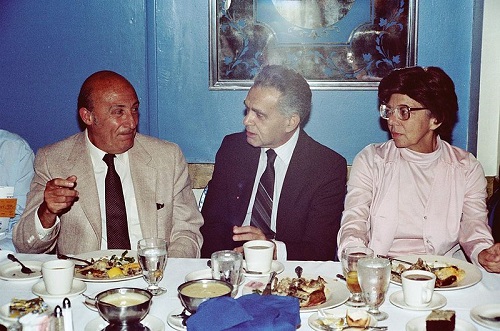 |
| Photo by Alan Light |
Friday afternoon is usually a great time to hide bad news. It’s a common enough practice that it has its own name: the Friday News Dump. So you can imagine that there was some befuddlement when this was announced:
“Marvel and the family of Jack Kirby have amicably resolved their legal disputes, and are looking forward to advancing their shared goal of honoring Mr. Kirby’s significant role in Marvel’s history.”
This was not bad news. This was the exact opposite of bad news. This was acknowledgement of the role of arguably the most important creator in comic book history by a notoriously litigious company on the eve of maybe the opening of the Supreme Court’s phase in the litigation. This was incredible news. After 30 years of fighting with Marvel over King Kirby’s contributions to their universe, FINALLY there was some kind of positive resolution.
After a weekend of unpacking the statement, looking through the history of the case, and rampant speculation, I’d say this agreement is certainly a huge deal, but the consequences aren’t universally positive. Here are four reasons why we shouldn’t get too excited about the Kirby-Disney settlement, and four reasons why we should.
1. We Will Probably Never Know the Exact Details of the Deal.
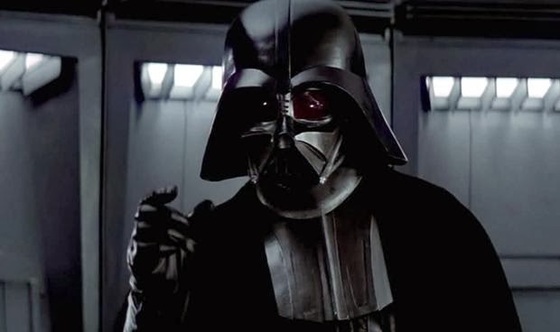 |
These sorts of deals are almost universally packaged with some sort of non-disclosure agreement. For that matter, almost everything Marvel does (and DC too, I’m sure) comes packaged with some sort of non-disclosure agreement. So we shouldn’t expect any announcements detailing the terms of the agreement any time soon.
We won’t have much clarity on any of the outcomes until probably when Age of Ultron comes out next year. Any agreement for credit will likely first show up in the credits on next year’s Avengers sequel (unless they can sneak it onto the home release of Guardians of the Galaxy, which is unlikely). Until we get a sense of the outlines of the deal, I’m just going to print out a picture of Grant Morrison looking wistful and tape it inside all of my Marvel DVDs.
2. None of the Legal Issues Were Settled
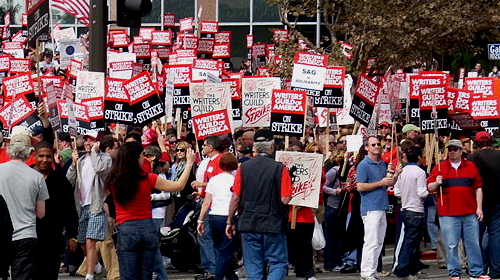 |
| Jengod |
The case was never about whether or not Jack Kirby had some level of input into the creation of 95% of the Marvel Universe. That’s fairly well settled. At issue was the legal distinction between levels of creative input – Marvel argued that through editorial, the company commissioned and directed the creation and development of these characters, and thus owned them. The Kirby estate’s lawyers argued that he had far more creative discretion than that, and as the ideas came from him, he and his estate are entitled to more compensation than he received.
This is a fairly significant issue, which is why it drew attention from people like the former director of the US Patents and Trademarks office and the unions representing actors, directors and writers. With the case being settled before the Supreme Court had a chance to rule, the law will remain ambiguous for the time being, leaving us, the right-thinking citizens of Nerdblogistan, to determine the true meaning of “work-for-hire.”
3. Disney Likes the Ambiguity
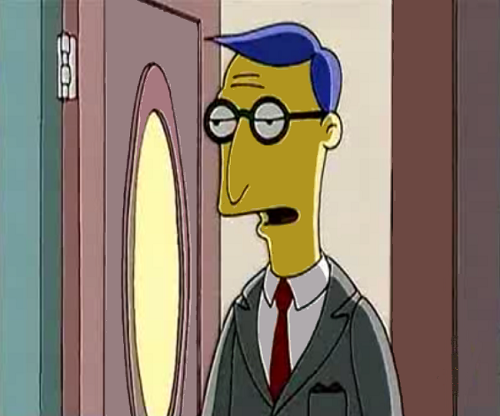 |
Disney is notoriously into lawyers, and it’s a common legal tactic for the side with deeper pockets to just wait for their opponent to run out of money. It’s not hard to imagine that coming out of this case without a clear ruling one way or another isn’t, at the very least, a neutral outcome for a company that has more money than actually exists and owns a snake pit full of potential copyright lawsuits.
The fact that the legal questions raised by the case will remain outstanding is significant. Another case like this would take years and cost millions, and for a creator without the profile of Kirby, it’s unlikely that they’d have the resources to pursue it. Disney can stall and browbeat them into a settlement or wait them out and hope that the case goes away; whereas with settled law, especially if the Supreme Court ruled in favor of the Kirby estate, it would be a much quicker and cheaper process to terminate the copyrights. Of course, “if the Supreme Court ruled in favor of the Kirby estate” was about as likely to happen as Obama naming Dwayne Elizondo Mountain Dew Herbert Camacho to replace the Notorious RBG on the Court.
4. There Is No Way the Roberts Court Would Have Ruled for the Kirby Family.
 |
| Steve Petteway. |
| Look at all the UMADBRO? faces in this picture. |
Let’s be totally real here: this case had no shot. Purely on the identities of the parties involved, there was absolutely no way that this Supreme Court, which is rumored to be very slightly pro-business would rule against Marvel and for the Kirby estate, even in a very narrowly constructed decision. There are at least three guys on this court who are the kind of people who nod and mutter to themselves “right on, brother” whenever they hear an NBA owner yammering about how the owners are the ones who make the game. So I guess this is really something to be happy about, because without Marvel settling, there’s no way the Kirby family would have seen a dime from it.
On the other hand, the thought of the man who used the phrase “legalistic argle-bargle” talking and writing about comic books would have surely produced the most incredible written decision in Supreme Court history. It would have been a blast…haha j/k it would have been torture. Remember all of the stupid “BAM POW ZOOM” puns that you used to get whenever the mainstream media got a hold of a comic book story? Imagine that, only written with the haught of a New Yorker cartoon and included in a hectoring footnote about how Spider-Man is both threat AND menace for stealing upstanding businessman Norman Osborn’s intellectual property in the form of a spider, lost somewhere in the middle of a 20-page opinion that very dryly but very clearly tells the rest of his colleagues to go to hell. That’s what we would have gotten from Justice Scalia.
A lot of this is just cynicism, though. This may not have been the big, sweeping change to US copyright law that many were hoping for, but it’s still a REALLY BIG DEAL. There are plenty of reasons to be excited for the outcome:
1. It’s Jack Kirby, for God’s Sake.
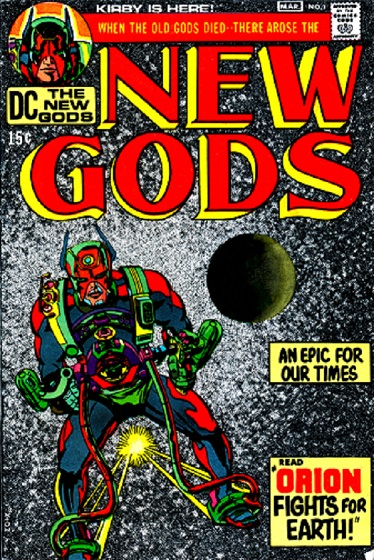 |
| DC Comics |
It’s tough to imagine Kirby getting the same level of fawning that Stan Lee has received over the last 20 years, if only because once the publicity ball got rolling on his life it probably would have spun out of control until we got a handful of unauthorized biographies and an Oscar-baity movie about his time serving under General Patton. Hell, they probably would have rewritten Argo to make him the main character.
Even without the same recognition, he’s still the subject of intense interest around the entire comics-reading universe. He was a war hero, serving in Patton’s army and fighting in the Battle of the Bulge in World War II. He and Joe Simon, after they created Captain America, came back from the war to invent the entire romance comic genre. The man is in-canon God the boss of Judeo-Christian Heaven in both the Marvel and DC universes (or he was, until Flashpoint DAMN YOU DIDIO). This is a guy who helped create probably 70% of the superhero comics that exist now. Every shred of recognition that he gets is deserved. And actually, Oscar-bait about Jack Kirby single-handedly saving a gaggle of hostages sounds like an awesome movie.
2. BEEP BEEP BEEP
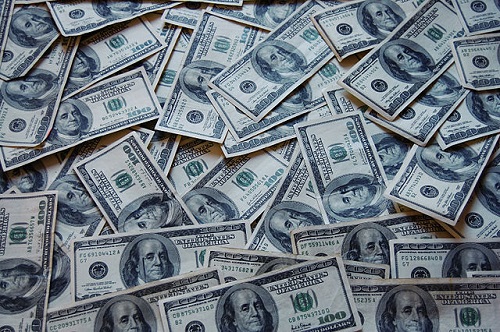 |
| 2bgr8 |
That’s the sound the armored truck makes as it backs up to dump its cash at stately Kirby manor. There is no way that the estate isn’t getting PAID (pronounced with a distinct rapper inflection, more like PAYEEEED) off of this.
A ruling in favor of the Kirby estate would have potentially led to profit sharing between the family and Marvel going back to the first Iron Man movie. That would be an astronomical amount of money, so much that the minuscule percentage of that sum that they probably settled for is still large enough to qualify as a lottery jackpot.
3. Some Mighty Fine Lawyerin’.
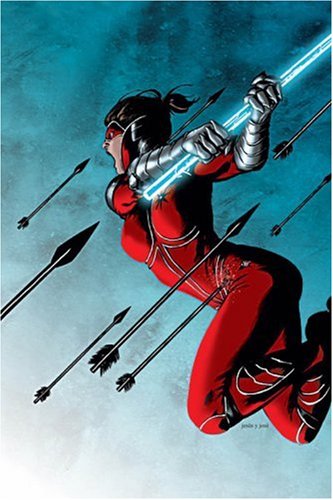 |
| Manhunter vol. 2, cover art by Jesus Saiz |
The settlement is a result of bargaining from the absolute best possible bargaining position available. The estate was never going to be stronger than right before the Supreme Court starts talking about the case. Any decision the court was going to make would have reduced their bargaining standing in at least a minute way – if they decline to take the case, it’s over, and the estate would have been out of everything; if they heard the case, the lawyers would have likely come to the same conclusion I did and the estate would have been dealing from a position of weakness. To land a settlement now was to maximize the potential return for the family.
Add to that the fact that they lost twice (first in the Southern District of New York and again at the 2nd Circuit Court); that they managed to get anything at all is the legal equivalent of a miracle touchdown to win the game as time expires.
4. What This Settlement Symbolizes.
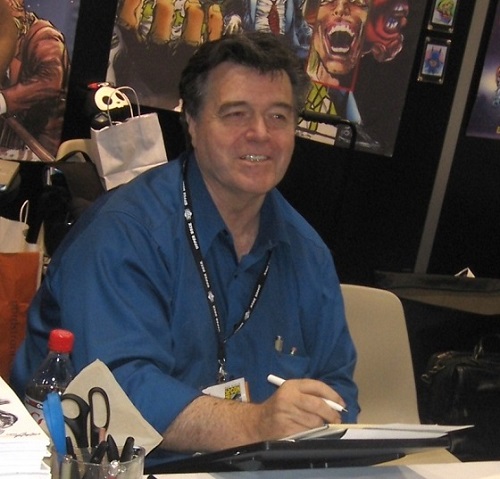 |
| Doczilla |
Getting Disney to concede to the Kirby estate ANYTHING regarding creator rights is a huge victory for the comic creator community. High profile creators have been using Jack Kirby’s treatment at the hands of Marvel (broken promises on royalties, screwing with his page rate or on returning his original art) for 30 years as the impetus to make books for themselves and to stand up for creators’ rights, for themselves and their colleagues. Even before the settlement, their work has been paying dividends. Go see if Gene Colan got any love besides an offhand character name in the movie in Daredevil. WAIT DON’T. That movie is still terrible. I’ll save you the trip: besides being the name of one of the boxers Battlin’ Jack Murdock fought, he wasn’t mentioned, thanked, credited, anything. Ten years ago it would have been inconceivable for Bill Mantlo to see a thank you at the end of a Rocket Raccoon movie (and only partially because ten years ago it was inconceivable that a Rocket Raccoon movie could exist anywhere but a Keith Giffen fever dream). Instead, not only does Mantlo get a screening of the summer’s biggest movie, but he also gets thanked and recognized as Rocket’s creator at the end.
What exists today happened because of the fight that Alan Moore and Frank Miller and Neal Adams and the Image guys fought; a fight that started in part because of how Jack Kirby was treated. So I’m sure for them it’s very gratifying to see not only the love and recognition that the King so rightfully deserves from the comics community, but to see their work pay off with the Kirby family finally compensated and recognized by Marvel as the force he was.
This is the real important point of this settlement. As the folks who are just coming to these characters through the movies sit through the credits waiting for their hidden scene, they’ll see scrolling past them “everything you just watched was co-created by Jack Kirby.” All of the reasons not to get excited from earlier in this list are moot compared to that.
Previously by Jim Dandeneau:
The 7 Best Ways to Clear Up Comics Continuity Errors
